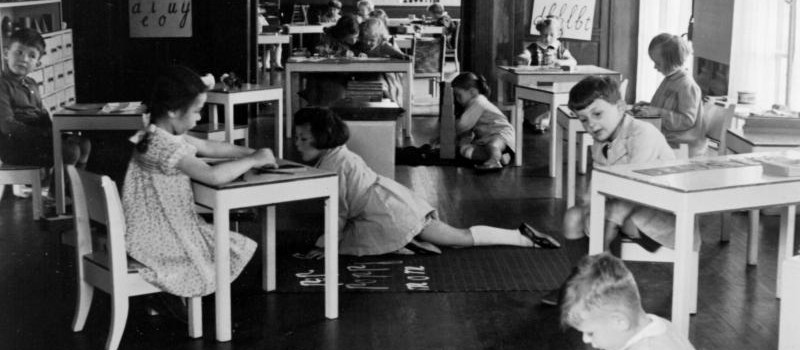As of 1897, she publicly speaks at conventions or in specialized magazines about mentally disabled children. She fights for classes to open specially for these children as well as an appropriate training for educators. “Disabled children are not outside the law”, she states in Turin in 1898, “they have rights and they are also entitled to education benefits. We need to allow these less fortunate people to come back into society, achieve their place and independence in a civilized world and therefore to reconnect with their human dignity.”
The same year, she became the National League consultant for the Disabled Children Protection, a national organization that had just been created thanks to her action. The following year, she was named co-director of the Orthophrenia school, a school to train specialized educators and it is in this school that she developed the methods and material she used later with normal children. She made teachers realize the importance of observation to accompany the child’s progress: “observe, don’t judge”.
With the students’ results (some are as successful as normal children), the reputation of the school goes beyond Italy and gets the attention of politicians, researchers and journalists around the world.
 English
English  Français
Français 


